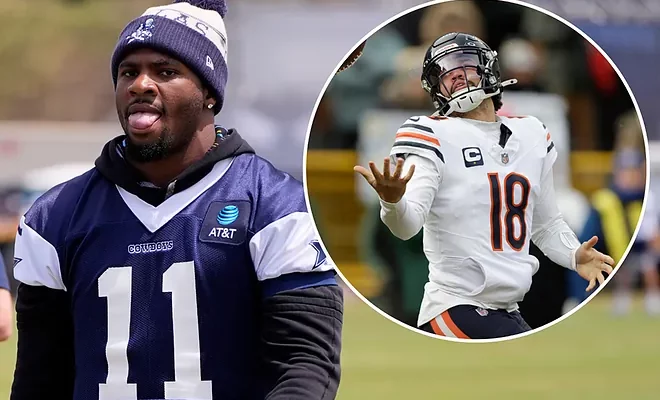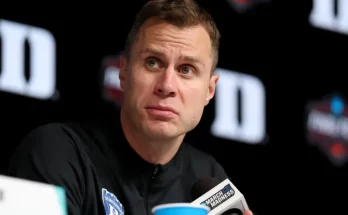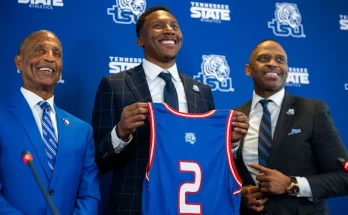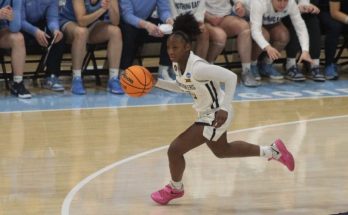The mere thought of Micah Parsons in a Chicago Bears jersey has sent shockwaves rippling across the NFL landscape. While trade speculation often ignites during the quieter stretches of the offseason, this one feels different. The buzz is deafening, the implications massive, and the stakes higher than ever for the Dallas Cowboys and their outspoken owner, Jerry Jones. If these whispers grow into reality, Dallas could be on the verge of one of the most controversial and potentially catastrophic decisions in its storied history.
Micah Parsons isn’t just a star; he’s a generational talent. Since entering the league in 2021, the former Penn State standout has been nothing short of transcendent for the Cowboys. Whether rushing off the edge, dropping into coverage, or disrupting the backfield with a burst few linebackers have ever possessed, Parsons has redefined the modern hybrid defensive role. His accolades in just a few seasons include multiple Pro Bowl selections, Defensive Rookie of the Year honors, and near-constant Defensive Player of the Year consideration. He’s become the identity of the Cowboys’ defense and arguably the most feared player on that side of the ball across the entire NFL.
So how did we get here? Why is the face of Dallas’ defense even mentioned in the same breath as trade rumors? It all boils down to contract disputes, long-term roster strategy, and, some argue, Jerry Jones’ increasingly outdated decision-making style. Parsons, as expected, is due for a massive extension—one that would likely reset the market for non-quarterback defenders. Given his versatility, production, and age, he could command a deal north of \$150 million. While that price tag may seem astronomical, it’s the going rate for the elite. Jones, however, has always approached contracts with a peculiar blend of sentimentality and stubbornness. While he’s paid stars in the past—like Ezekiel Elliott and Dak Prescott—he’s also hesitated or even refused to break the bank for others, often resulting in regretful departures.
What makes the situation even more complex is the state of the Dallas roster. With the offense in flux, questions surrounding Dak Prescott’s long-term fit, and other key defensive pieces aging or set to hit free agency, Jones faces a financial puzzle with limited room for error. If he chooses to offload Parsons in a blockbuster trade, Dallas could gain significant draft capital or multiple starters, but at what cost? How do you justify parting ways with arguably the best player on your team in his prime years?
That’s where the Chicago Bears enter the picture. Led by a resurgent front office and energized by the arrival of top pick Caleb Williams, the Bears are building something. They’ve shored up their offensive line, added skill position talent, and boast a defense that—while improved—is missing that one elite-level disruptor to put it over the top. With ample cap space and draft assets to spare, Chicago is in position to make a bold move. Bringing in Parsons would be more than just a defensive upgrade—it would be a culture shift, a statement that the Bears are no longer content to rebuild slowly. They want to compete now, and Parsons would instantly elevate them to contender status in the NFC North.
It’s hard to overstate how much of an impact Parsons would have in Chicago. Picture him lined up alongside rising studs like Tremaine Edmunds, Montez Sweat, and Jaylon Johnson. With Parsons wreaking havoc off the edge or in the middle of the field, offensive coordinators would lose sleep trying to scheme against that kind of dynamic pressure. And with a rookie quarterback in Caleb Williams who would benefit from a dominant defense buying him time to grow, the Bears’ timeline for contention could shrink dramatically.
On the Dallas side, however, the optics are grim. Losing Parsons would send a message to fans and the locker room alike—that the team is once again punting on opportunity in favor of some vague long-term plan. And Cowboys fans have seen this movie before. From letting go of DeMarcus Ware too early to mismanaging the prime years of Tony Romo and Dez Bryant, the franchise has often struggled to capitalize on windows of success. Trading Parsons would not just be a repeat of that trend; it might be its most glaring example yet.
Furthermore, there’s no guarantee that whatever the Cowboys get in return would amount to anything close to Parsons’ production. Draft picks are gambles, no matter how high. Prospects can bust. And while adding multiple starters might fill out the roster, replacing a game-wrecker like Parsons is nearly impossible. For a defense built around his versatility and presence, removing that cornerstone could cause the entire structure to wobble.
The psychological toll on the team can’t be overlooked either. Parsons is a leader. His energy, fire, and passion are contagious. He embodies what Cowboys fans want their team to be—tough, relentless, and unapologetically dominant. Stripping the team of that presence could fracture the culture Mike McCarthy and Dan Quinn have spent years trying to cultivate. It’s the kind of move that reverberates beyond the field and into the identity of the franchise itself.
And then there’s Jerry Jones. At 82, Jones is running out of time to win another Super Bowl. It’s no secret he’s desperate to see his team hoist the Lombardi Trophy again before stepping away from the game he loves. But decisions like potentially trading Parsons run counter to that urgency. If Jones truly wants to contend, he must understand that elite players in their prime are the foundation of any championship team. Letting one go—especially for cap flexibility or future assets—is a dangerous game of kicking the can down the road when the present demands action.
Of course, there’s still time for this entire saga to resolve itself without a trade. The Cowboys could bite the bullet, pay Parsons what he’s worth, and lock him in as the defensive centerpiece for the next half-decade. They could build around him, use the draft to supplement the roster, and finally chase that elusive postseason run with conviction. That’s the path most fans hope to see. That’s the path that aligns with common football sense.
But when Jerry Jones is involved, conventional wisdom doesn’t always win out. For better or worse, he’s never been afraid to gamble. Sometimes it pays off—like the trade for Amari Cooper in 2018—but more often than not, the risks backfire. If he pulls the trigger on a Parsons deal, the consequences could be irreversible. He may be remembered not as the owner who brought Dallas back to glory, but as the one who let a generational talent walk out the door in his prime.
The next few weeks will be critical. If reports continue to surface linking Parsons to the Bears—or any other team—Cowboys fans will justifiably grow restless. The locker room will grow uneasy. And the football world will watch with bated breath. Because this isn’t just another trade rumor. This is a potential franchise-altering decision that could define the legacy of Jerry Jones and the direction of the Dallas Cowboys for years to come.
Chicago, meanwhile, waits in the wings—ready to pounce. They’ve got the cap space, the ambition, and the need. And if they land Micah Parsons, they might just become the league’s next great defensive powerhouse. In a sport where one player can change everything, Parsons is that player. The only question now is whether Jerry Jones realizes that before it’s too late—or whether he’ll make the kind of mistake that haunts Dallas for a generation.



